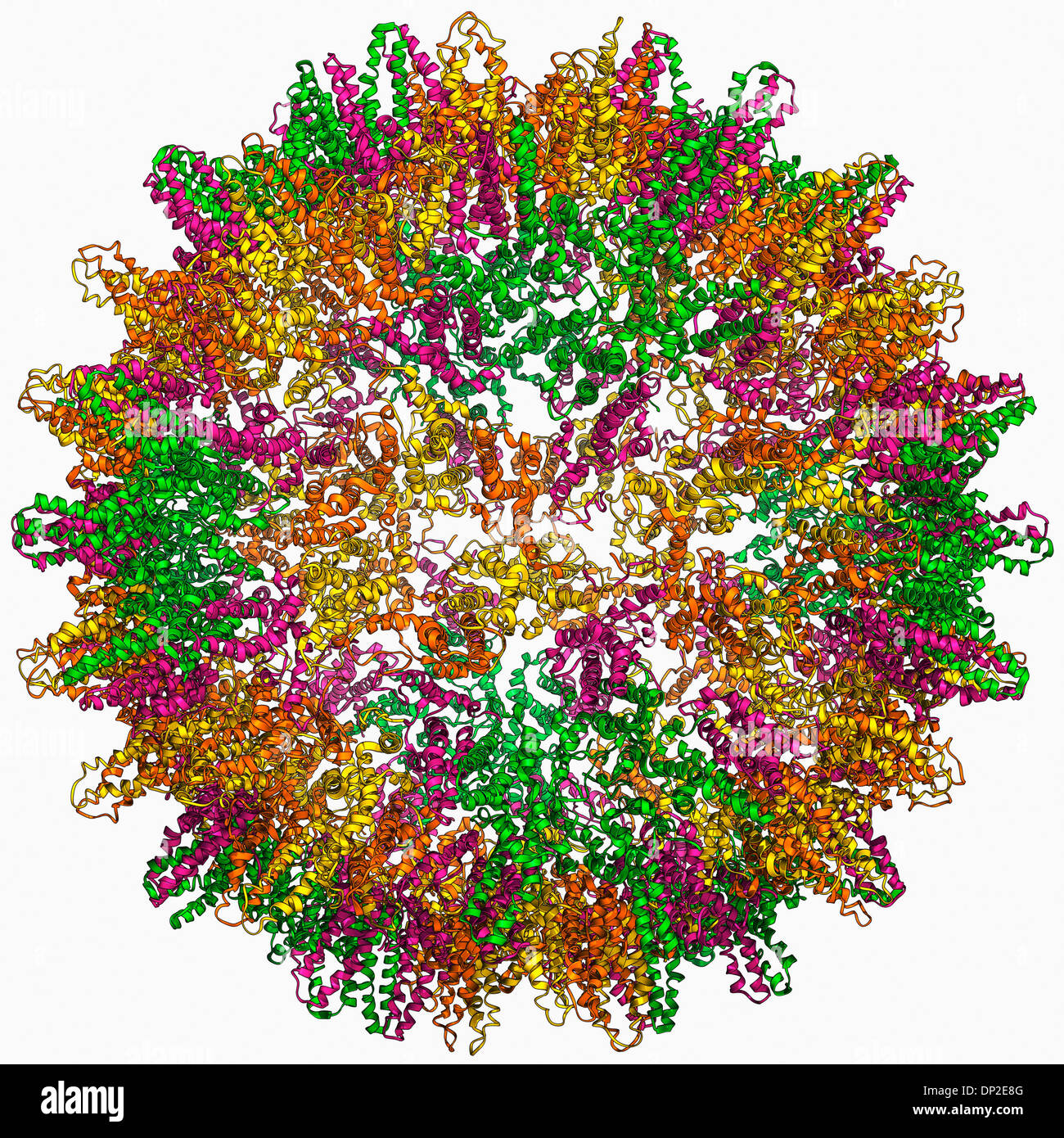Hepatitis B virus capsid, molecular model

RFID:Image ID:DP2E8G
Image details
Contributor:
Science Photo Library / Alamy Stock PhotoImage ID:
DP2E8GFile size:
50 MB (5.7 MB Compressed download)Releases:
Model - no | Property - noDo I need a release?Dimensions:
4180 x 4180 px | 35.4 x 35.4 cm | 13.9 x 13.9 inches | 300dpiDate taken:
13 June 2013Photographer:
LAGUNA DESIGN/SCIENCE PHOTO LIBRARYMore information:
Hepatitis B virus capsid, molecular model. This virus, transmitted through infected bodily fluids or blood, causes the disease hepatitis B in humans, leading to acute liver inflammation. In viruses, the capsid is the protein shell that encloses the genetic material. A capsid consists of subunits called capsomeres that self-assemble to form the shell seen here. Here, this shell, approximately spherical in shape, has icosahedral symmetry. One of the functions of the capsid is to aid the transmission of the viral genetic material into host cells.